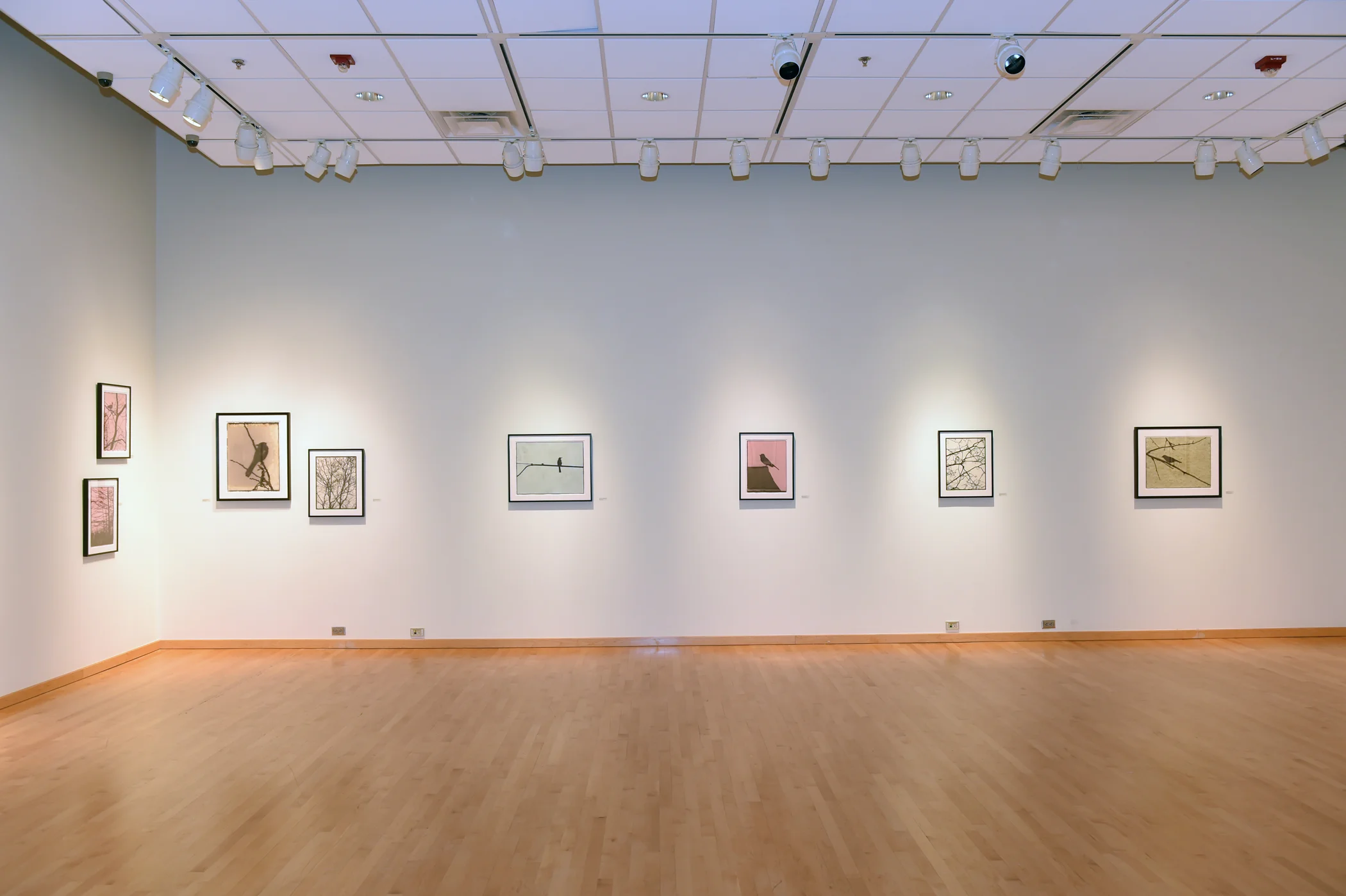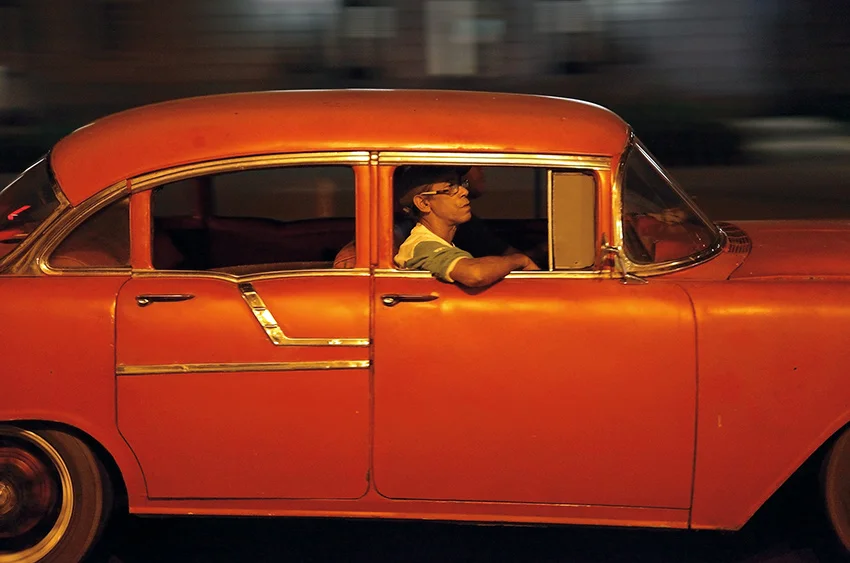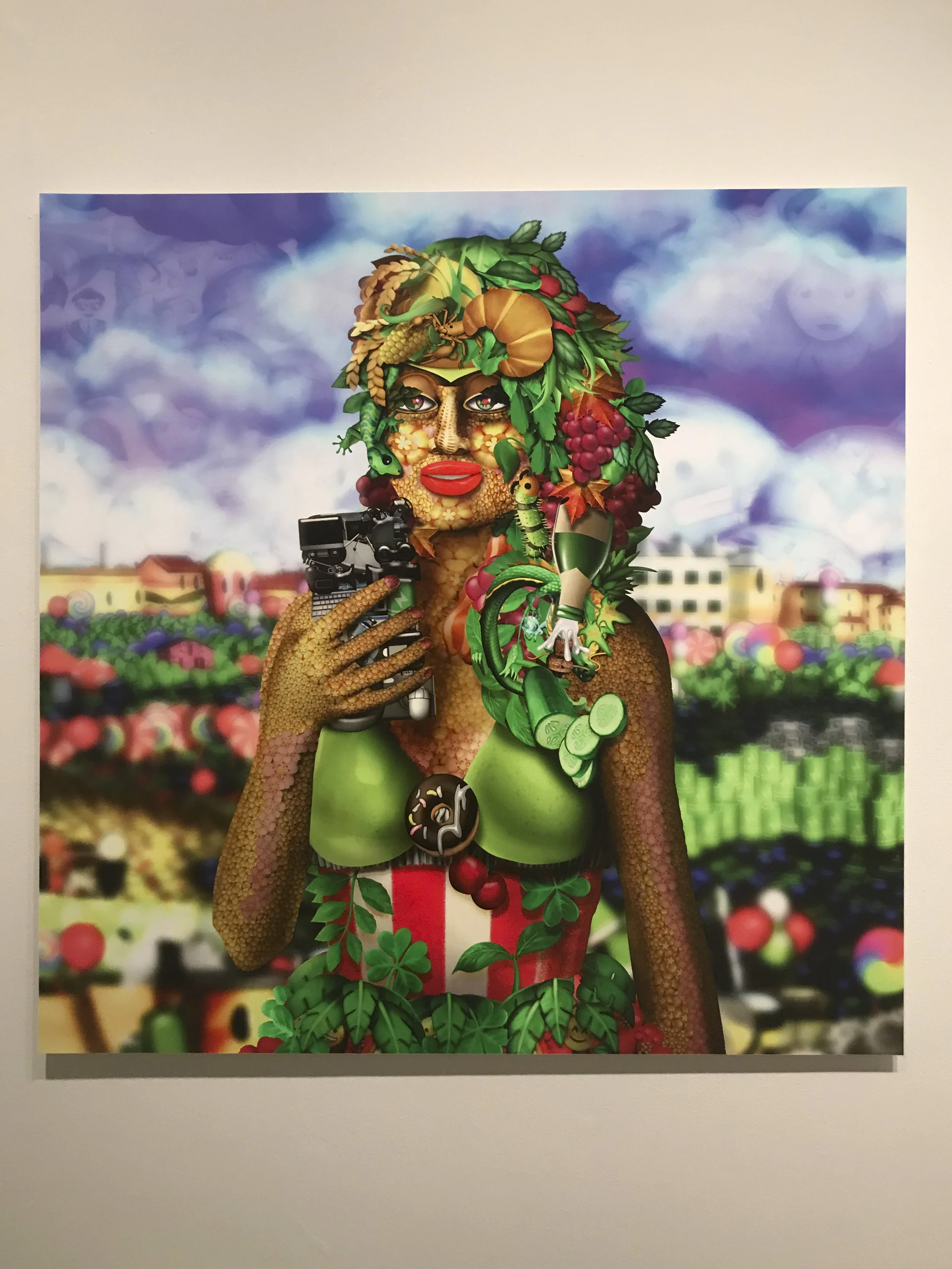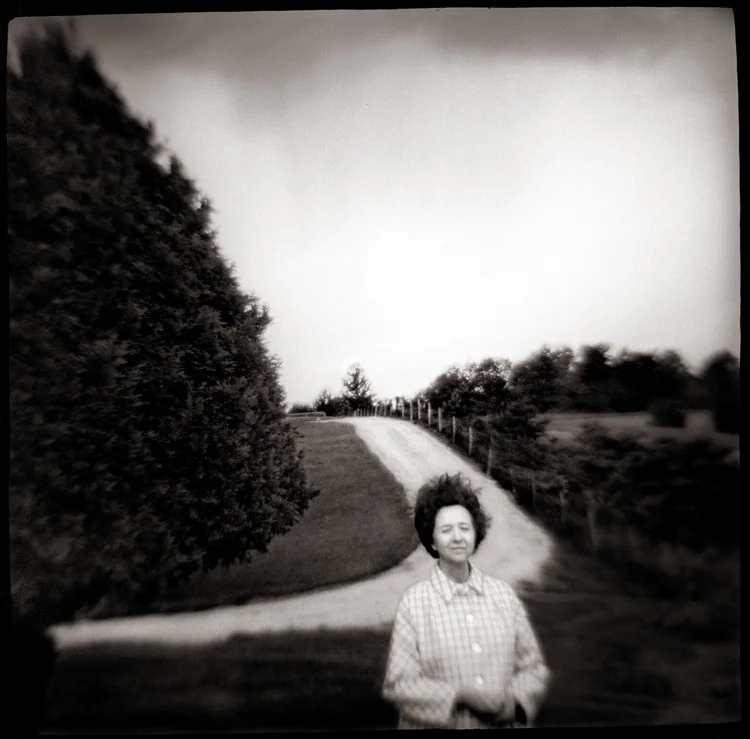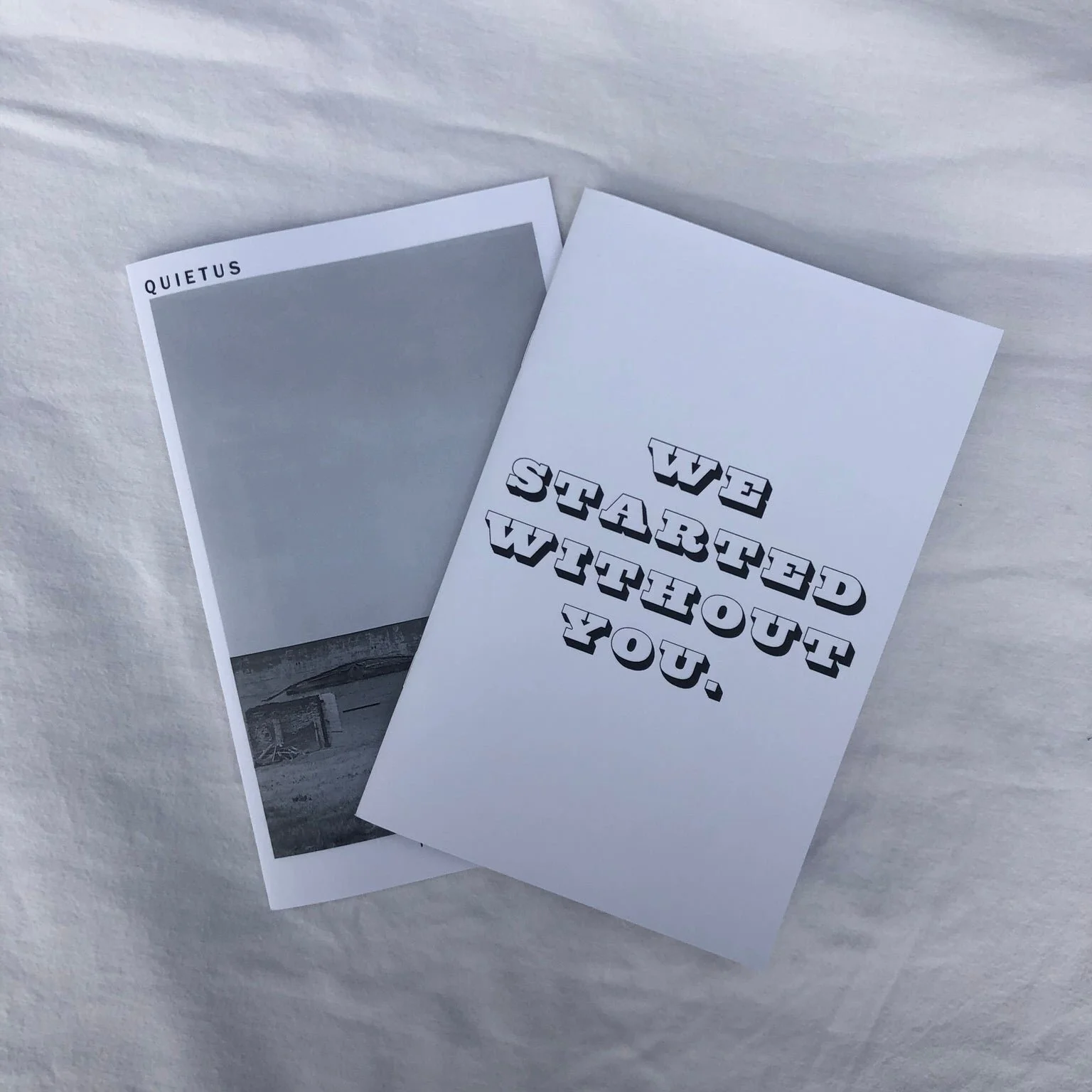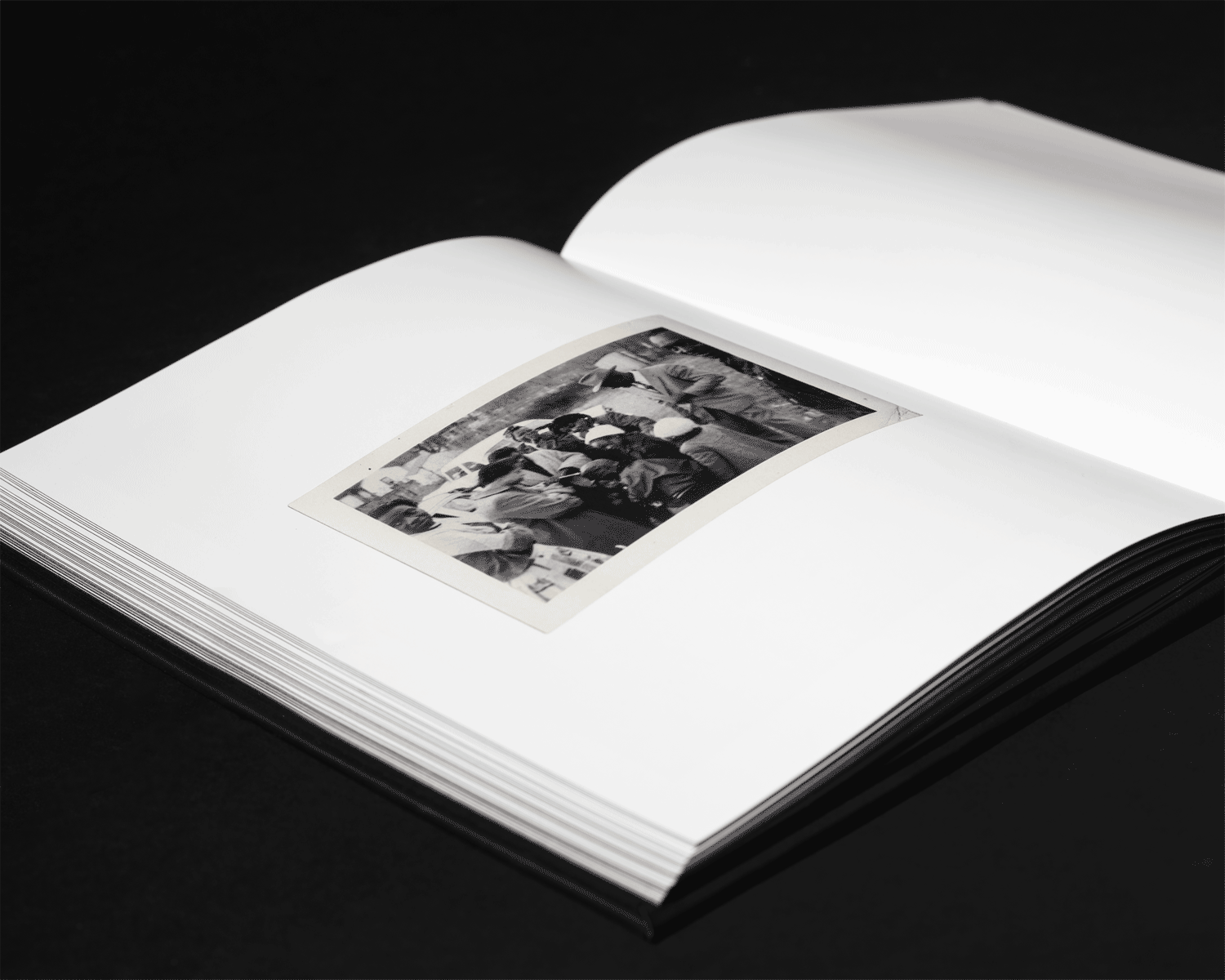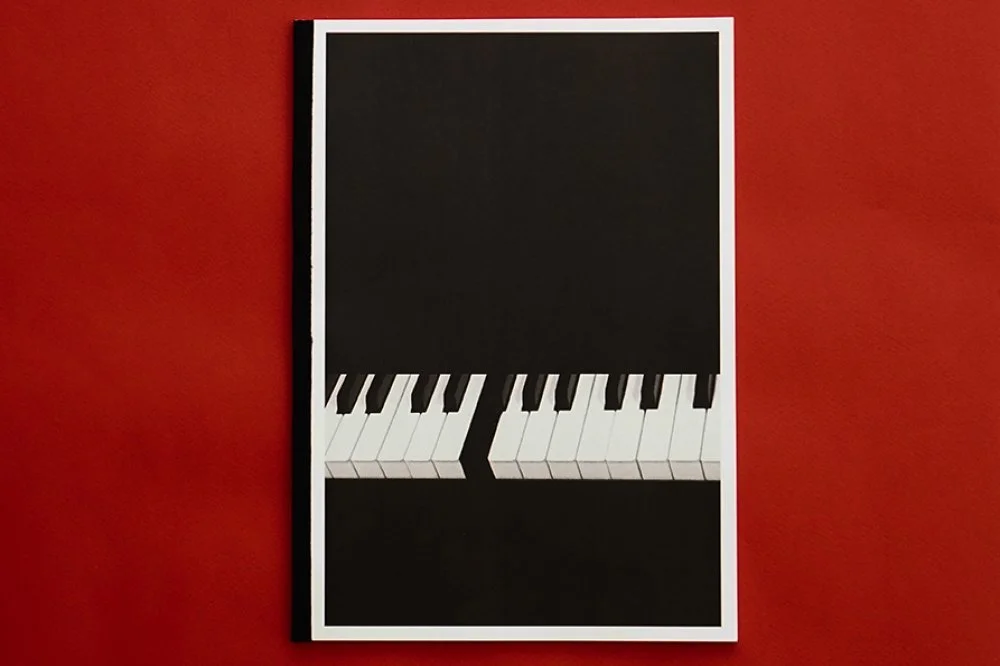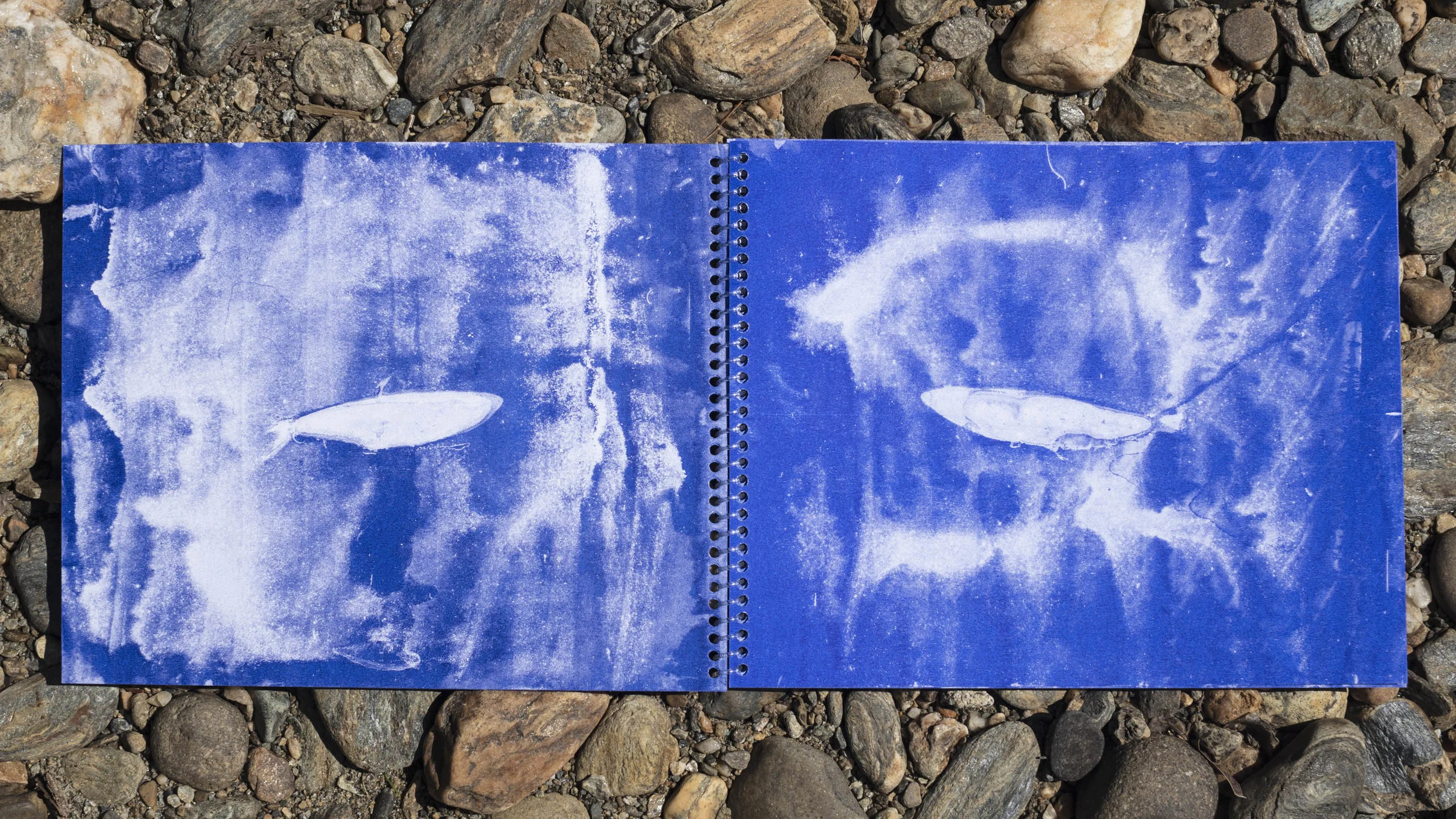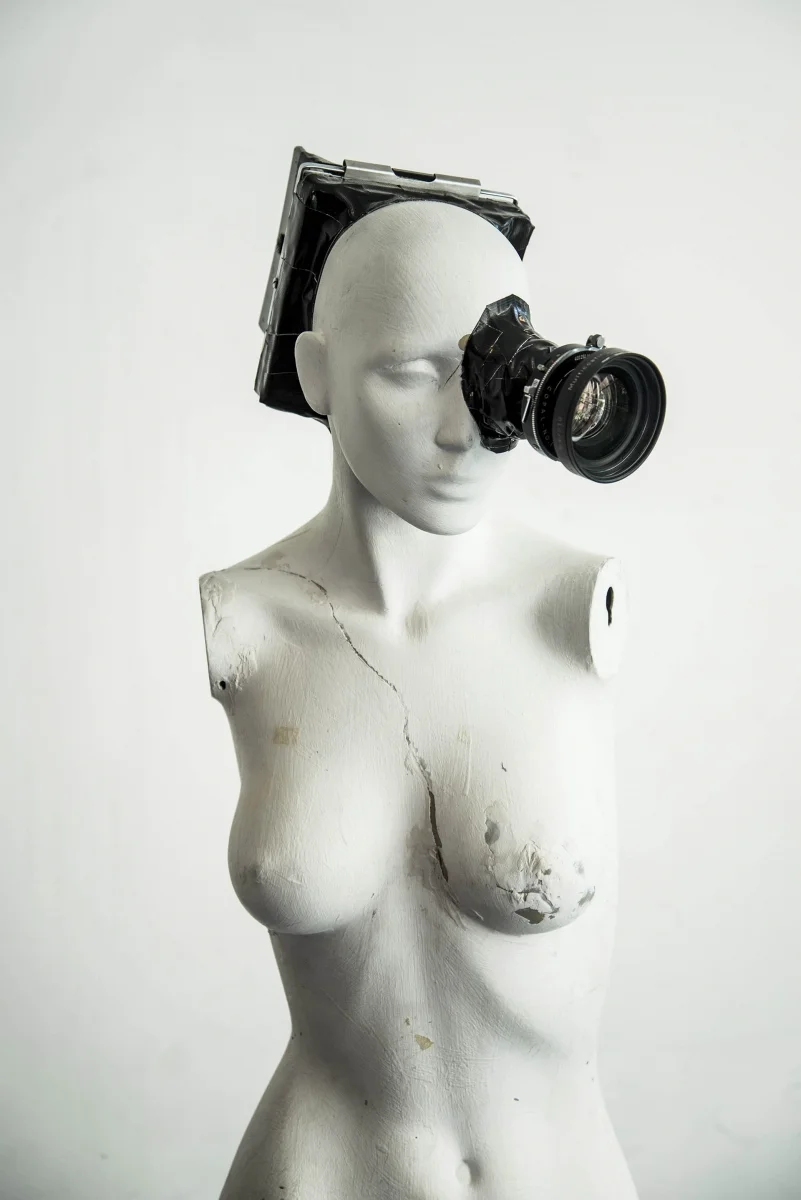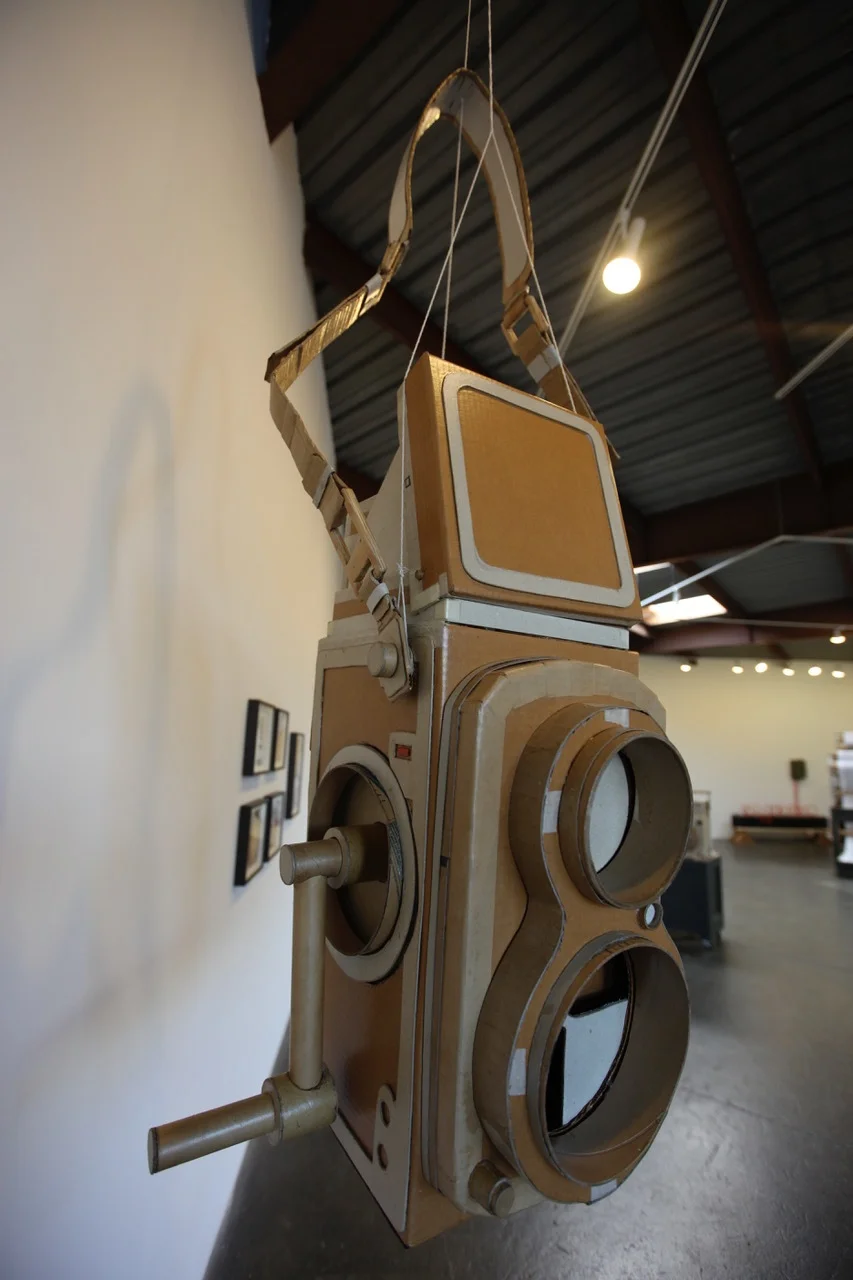Alyssa Salomon is a self-proclaimed “Romantic with a capital R.” Blending antiquarian photographic processes with contemporary subjects and Romantic poetic titles, Salomon acts as a voyeur, documenting humans and the natural world. She compares herself to a bird-watcher, looking through her long lens in search of subjects that are natural, “but not, like, the flu…I’m not interested in organic ugliness, only beauty.” It is this kind of candor that made her talk about her series Tell Me Again the World Will Be Beautiful at Washington & Lee University’s Stanair Gallery last week honest and accessible.
Photo: Kevin Remington, courtesy of Staniar Gallery
As those in attendance milled around the exhibition before the talk, I overheard two students debate whether the works were drawings or photographs. They concluded that they must be drawings because of the textures and absence of clarity so often associated with photography. Salomon took the podium and began her talk by stating that all pieces in the exhibition were in fact photographs, if photographs are defined as light-based media. The two students looked at each other quizzically and waited for an explanation. Salomon wants to show what a picture feels like, not, she says, “what it looked like when I made it.” Her printing processes include cyanotypes, van dykes, and other hand-applied emulsions of her own concoction that have caused people to ask, “How is this a photograph?”
Photo: Kevin Remington, courtesy of Staniar Gallery
At first walk-through, the subject matter seems disjointed, cohesive only its monochromatic hand-made simplicity. Images of birds in silhouette are hung next to beach-goers and bare trees. Even the paper changes, ranging from blues and greens to browns and pinks. But spending more time with the work reveals that the connective threads lie in Salomon’s observations of life—human and otherwise—in times of joy and in natural settings. The work is strongest when Salomon focuses on the sand and surf of Virginia Beach, where she returns again and again to create images of people wading into the ocean. Her carefully crafted cyanotype These Wild Ecstasies (for A. Siskin) amplifies the feeling of euphoria she has recorded with her camera by contrasting the liberating power of ocean spray on the dark skin of the subject.
These Wild Ecstasies (for A. Siskin)
The handmade papers Salomon incorporates into her work have a purpose I did not see at first; deep mauves for dusk, browns for land, and blues for sky and water, make allusions to seasons and times of day. The clever pairing of a blue-toned airplane and a brown-toned bird in Of All the Mighty World of Eye & Ear shows the manmade and the natural creatures of flight in visual contrast and existing in harmony.
Of All the Mighty World of Eye & Ear
Drawing from her liberal arts education, Salomon titles her work using snippets of poetry by the 19th century Romantic William Wordsworth. Teach Them to Long for the Endless Immensity of the Sea is my personal favorite for its poignant title and evocative printing choices. An anonymous woman swims out to sea towards a ship in the distance. The selective toning of the print creates a fog around the ship, existing peacefully with the small figure in water.
Teach Them to Long for the Endless Immensity of the Sea
In this digital era, we are accustomed to viewing art online. But if you are able to visit the show, I encourage you to do so. The tactile nature of the prints brings these simple images to life, and fills them with energy and freedom not evident on the screen. For those who understand the techniques involved, the exhibition shows Salomon’s masterful marriage of craft and content. Photography enthusiasts will broaden their knowledge of photographic processes as well as enjoy their journey into the optimistic world she presents. Mixing poetry, photography, and paper-making in a multidisciplinary approach gives Salomon’s work its broad appeal.
Tell Me Again the World Will Be Beautiful is on view at Washington & Lee University’s Staniar Gallery through May 23.
Kat Kiernan is the Editor-in-Chief of Don’t Take Pictures.


